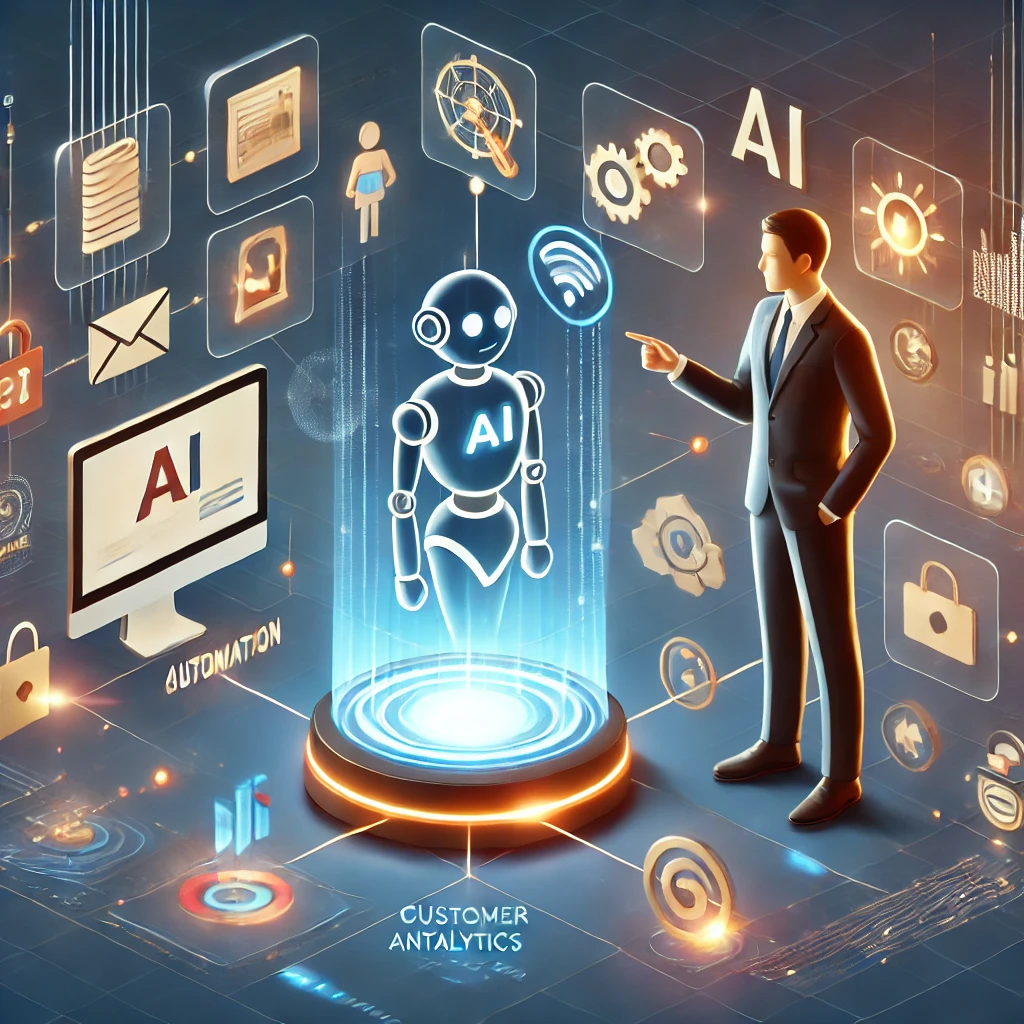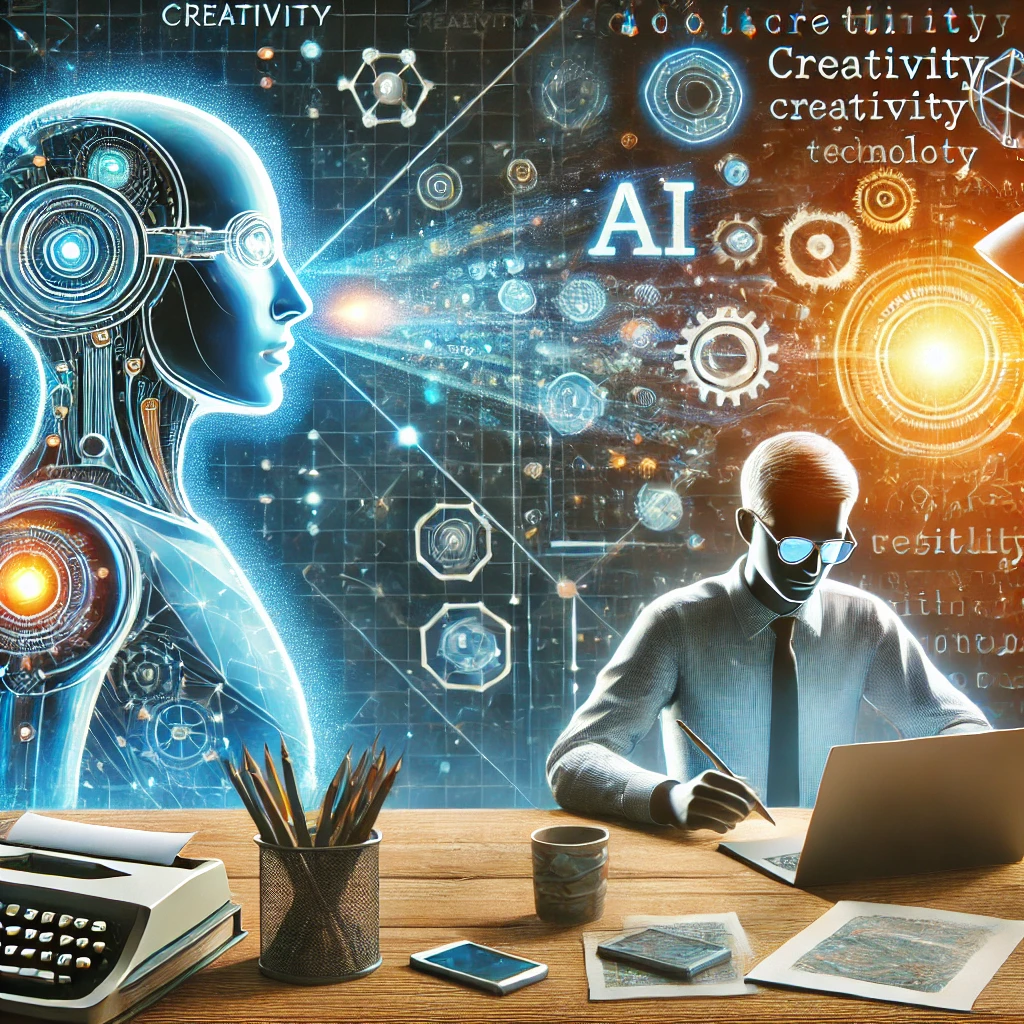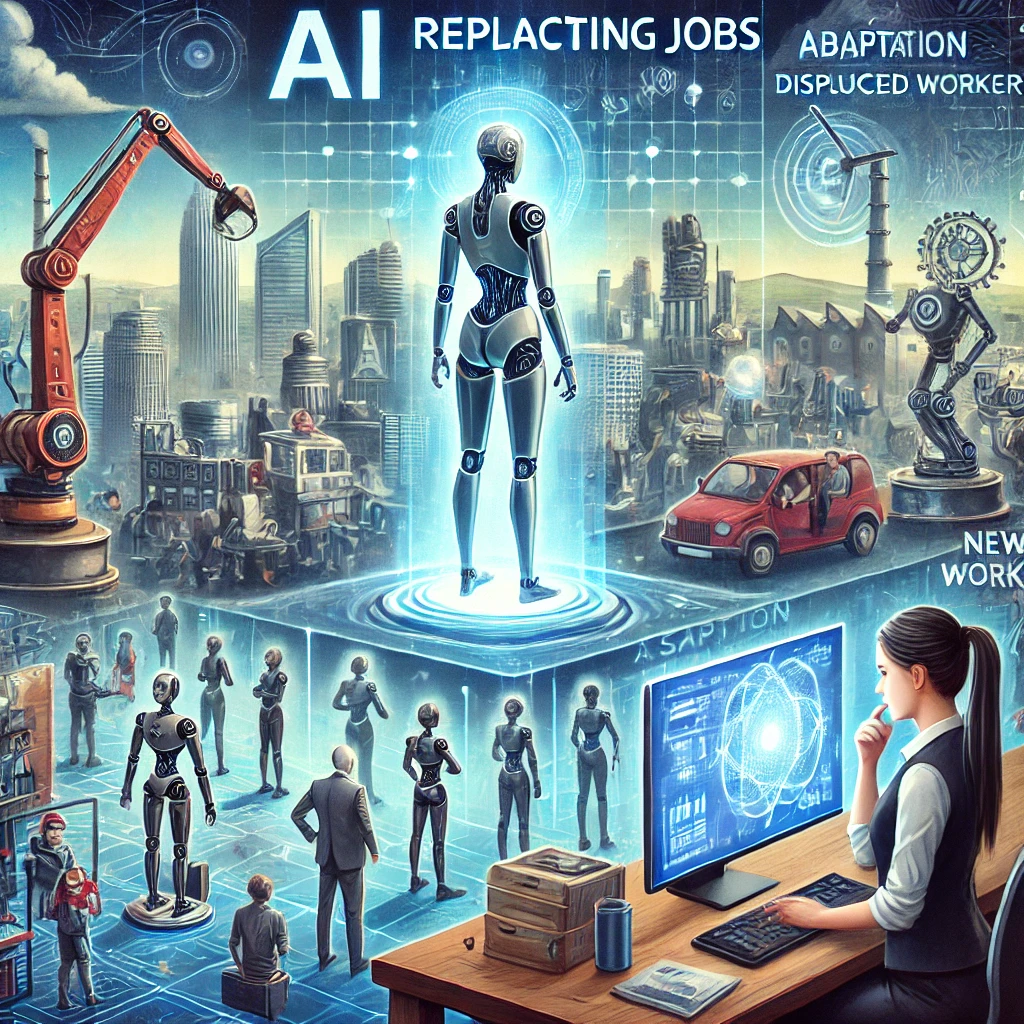Artificial Intelligence (AI) is revolutionizing the way small businesses operate, providing them with cost-effective automation, data-driven insights, and enhanced customer experiences. Once considered a luxury for large corporations, AI is now an essential tool that helps small businesses stay competitive in a digital-first world.
Table of Contents
ToggleAI is no longer just for big corporations—small businesses can leverage AI to enhance efficiency, boost sales, and improve customer experiences.
The Role of AI in Small Businesses
AI-driven solutions are empowering entrepreneurs to streamline their operations, cut costs, and improve efficiency. From automated customer support to predictive analytics, AI is enabling businesses to make smarter decisions with minimal resources.
Additionally, monitoring AI research publications, industry news, and forums can help you stay ahead of trends and identify topics that are gaining interest but may not yet be saturated.
AI and Customer Personalization
AI is playing a crucial role in enhancing customer experiences by delivering highly personalized services. Through data analysis and machine learning algorithms, businesses can understand customer preferences and behavior, allowing them to tailor products and services accordingly. AI-driven recommendations, personalized email marketing, and dynamic pricing strategies contribute to improved customer satisfaction and retention.
How AI is Helping Small Businesses
1. AI-Powered Customer Support
AI chatbots have revolutionized customer service by providing instant responses and 24/7 availability. These chatbots help businesses handle inquiries, schedule appointments, and assist with troubleshooting, reducing the need for human intervention.
- AI chatbots offer round-the-clock customer support.
- Platforms like ChatGPT-powered bots improve customer engagement.
- AI enhances personalization through Natural Language Processing (NLP).
2. AI for Digital Marketing & SEO
AI is helping businesses optimize their marketing strategies by analyzing customer behavior and suggesting targeted advertising campaigns. It improves SEO rankings and streamlines content marketing efforts.
- AI analyzes user behavior to refine marketing strategies.
- Tools like Surfer SEO optimize content for better rankings.
- AI-driven email marketing automation improves engagement and conversions.
3. AI-Driven Inventory Management
For businesses managing physical products, AI assists with inventory control, preventing both overstocking and shortages. AI-powered systems predict demand trends, ensuring optimal stock levels.
- Prevents inventory mismanagement through predictive analytics.
- AI-based tools like Zoho Inventory optimize stock flow.
- Reduces waste and excess spending in supply chains.
4. AI for Data Analytics & Intelligence Businesses
AI transforms raw data into actionable insights, helping businesses make better decisions. AI-powered analytics tools track customer trends, improve forecasting, and enhance financial planning.
- AI provides real-time data analysis for informed decision-making.
- Business intelligence tools like Google Analytics enhance insights.
- AI helps businesses predict market trends and customer preferences.
5. AI-Enhanced Content Creation
AI-powered tools streamline content creation, generating high-quality blogs, social media posts, and even videos. AI assists in crafting SEO-friendly content that ranks well.
- AI-driven platforms like Copy.ai assist in writing optimized content.
- AI video tools like Synthesia enhance marketing strategies.
- Automates content personalization for different audiences.
6. AI for Fraud Detection and Cybersecurity
AI strengthens cybersecurity by detecting fraudulent activities and preventing data breaches. Data analyst systems continuously monitor network activity and flag suspicious transactions.
- AI-powered fraud detection ensures data security.
- Cybersecurity tools like Darktrace AI monitor threats in real-time.
- Helps businesses prevent financial fraud and phishing attacks.
7. AI for Financial Management
AI automates accounting, bookkeeping, and expense tracking, reducing the workload for small business owners. AI-driven financial forecasting improves decision-making.
- Automates expense tracking and tax calculations.
- AI-driven platforms like QuickBooks AI offer real-time insights.
- Enhances financial forecasting and minimizes human errors.
8. AI-Powered HR and Recruitment
AI simplifies hiring processes by screening resumes, scheduling interviews, and assessing candidates based on data-driven insights.
- AI-driven tools like HireVue streamline hiring.
- Reduces recruitment bias and improves hiring decisions.
- AI automates interview scheduling, saving time.
Future of AI in Small Businesses
AI continues to shape small business operations, making them more efficient and scalable. With advancements in AI, businesses can expect better automation, enhanced personalization, and improved decision-making.
- Voice search optimization will become crucial for local businesses.
- AI-driven CRM systems will improve customer relationships.
- Hyper-personalization will refine marketing campaigns.
Conclusion
AI is not just a technological advancement—it is a necessity for small businesses looking to thrive in today’s digital economy. By integrating AI-powered tools, businesses can streamline operations, reduce costs, and deliver enhanced customer experiences. As AI continues to evolve, staying updated with the latest advancements and leveraging its capabilities will be critical for long-term success. Embracing AI today means securing a competitive edge for tomorrow.
AI is a transformational force for small businesses, helping them:
- Enhance efficiency and cost savings.
- Automate marketing, customer support, and inventory management.
- Improve decision-making through AI-driven analytics.
- Provide better customer experiences and engagement.



